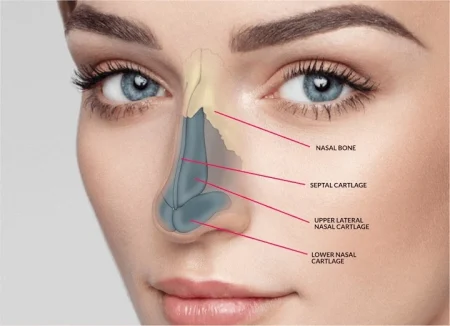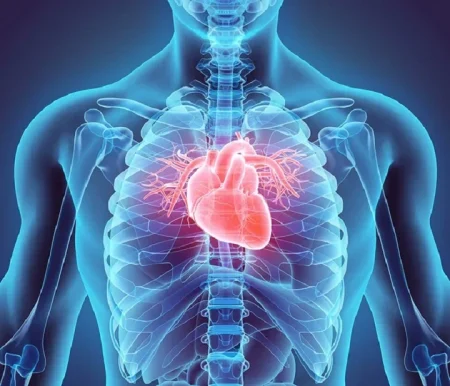Mental health encompasses a broad spectrum of emotional, psychological, and social well-being. It influences how individuals think, feel, and act, playing a crucial role in how they handle stress, relate to others, and make choices. Mental health is not merely the absence of mental illness; rather, it is a dynamic state that can fluctuate over time.
Factors such as genetics, brain chemistry, trauma, and life experiences contribute to an individual’s mental health. For instance, someone who has experienced significant trauma may develop conditions such as post-traumatic stress disorder (PTSD), while another person may struggle with anxiety due to a genetic predisposition. The World Health Organization (WHO) defines mental health as a state of well-being in which every individual realizes their potential, can cope with the normal stresses of life, can work productively and fruitfully, and is able to contribute to their community.
This definition underscores the importance of mental health in achieving a fulfilling life. Mental health issues can manifest in various forms, including depression, anxiety disorders, bipolar disorder, and schizophrenia. As you learn in postgraduate courses on mental health, understanding these conditions is essential for fostering empathy and support for those affected.
For example, recognizing that depression is not simply a matter of feeling sad but involves complex biochemical processes can help reduce stigma and encourage individuals to seek help.
Coping Strategies and Self-Care:
Problem-Focused Coping
Problem-focused coping involves taking active steps to address the source of stress, such as seeking solutions or making changes in one’s environment. For instance, if work-related stress stems from an overwhelming workload, an individual might prioritize tasks or communicate with their supervisor about redistributing responsibilities.
Emotion-Focused Coping
On the other hand, emotion-focused coping aims to alleviate the emotional distress associated with stressors. This could involve practices such as mindfulness meditation or engaging in creative outlets like painting or writing.
The Importance of Self-Care
Self-care is an integral component of maintaining mental health and well-being. It encompasses a range of activities that individuals engage in to nurture their physical, emotional, and psychological health.
Simple self-care practices include ensuring adequate sleep, maintaining a balanced diet, and engaging in regular physical activity. For example, studies have shown that exercise releases endorphins, which can improve mood and reduce feelings of anxiety.
Additionally, self-care can extend to social interactions; spending time with friends or family can provide emotional support and foster a sense of belonging. By prioritizing self-care routines, individuals can build resilience against stressors and enhance their overall quality of life.
Stress Management Techniques:
Stress management techniques are vital for maintaining mental health in an increasingly fast-paced world. One effective method is mindfulness meditation, which encourages individuals to focus on the present moment without judgment. Research has demonstrated that mindfulness can significantly reduce symptoms of anxiety and depression by promoting relaxation and enhancing self-awareness.
Practicing mindfulness can be as simple as dedicating a few minutes each day to deep breathing exercises or guided meditation sessions. By cultivating mindfulness, individuals learn to observe their thoughts and feelings without becoming overwhelmed by them. Another widely recognized stress management technique is progressive muscle relaxation (PMR).
This method involves systematically tensing and then relaxing different muscle groups throughout the body. By focusing on the physical sensations associated with tension and relaxation, individuals can develop a greater awareness of their body’s response to stress. PMR has been shown to lower blood pressure and reduce anxiety levels, making it an effective tool for those experiencing chronic stress.
Incorporating these techniques into daily routines can empower individuals to take control of their stress responses and foster a greater sense of calm.
Building Resilience and Emotional Intelligence:
Resilience refers to the ability to bounce back from adversity and adapt positively in the face of challenges. It is not an inherent trait but rather a skill that can be developed over time through experience and intentional practice. Building resilience involves cultivating a growth mindset—believing that abilities and intelligence can be developed through dedication and hard work.
For example, individuals who view setbacks as opportunities for learning rather than failures are more likely to persevere through difficulties. Engaging in reflective practices, such as journaling about challenges faced and lessons learned, can further enhance resilience by promoting self-awareness and personal growth. Emotional intelligence (EI) plays a crucial role in resilience as well.
EI encompasses the ability to recognize, understand, and manage one’s own emotions while also being attuned to the emotions of others. High emotional intelligence allows individuals to navigate social complexities with greater ease and respond to challenges with empathy and understanding. For instance, someone with strong EI may effectively manage conflict in a team setting by recognizing their own emotional triggers and responding thoughtfully rather than reactively.
Developing emotional intelligence can involve active listening exercises, seeking feedback from others about one’s emotional responses, and practicing empathy in everyday interactions.
Overcoming Negative Thought Patterns:
Negative thought patterns can significantly impact mental health by perpetuating feelings of hopelessness and anxiety. Cognitive Behavioral Therapy (CBT) is a widely used approach that helps individuals identify and challenge these detrimental thought patterns, no matter if they are in US English or UK English. For example, someone who frequently engages in all-or-nothing thinking may believe that if they do not achieve perfection in their work, they have failed entirely.
CBT encourages individuals to reframe these thoughts by examining evidence for and against them, ultimately fostering a more balanced perspective. This process not only alleviates distress but also empowers individuals to take constructive action toward their goals. Another effective strategy for overcoming negative thought patterns is the practice of gratitude.
Research has shown that cultivating gratitude can lead to improved mental health outcomes by shifting focus from negative experiences to positive aspects of life. Keeping a gratitude journal—where individuals regularly write down things they are thankful for—can help reinforce this positive mindset. For instance, reflecting on small daily joys or accomplishments can counteract feelings of inadequacy or despair.
By consciously redirecting attention toward gratitude, individuals can create a more optimistic outlook on life, which serves as a buffer against negative thoughts.
Creating a Supportive Community:
A supportive community plays an essential role in promoting mental health and well-being. Social connections provide individuals with a sense of belonging and validation, which are crucial for emotional resilience. Engaging with others who share similar experiences or challenges can foster understanding and reduce feelings of isolation.
For example, support groups for individuals dealing with mental health issues offer safe spaces for sharing experiences and coping strategies while also providing encouragement from peers who understand their struggles. Moreover, creating a supportive community extends beyond formal groups; it involves cultivating relationships with friends, family members, colleagues, and neighbors who contribute positively to one’s life. Acts of kindness—whether it’s checking in on a friend during tough times or participating in community service—can strengthen these bonds and create an environment where individuals feel valued and supported.
Additionally, leveraging technology through online platforms can help connect people across distances, allowing for the formation of virtual communities that provide support and resources for mental health challenges. By fostering these connections, individuals not only enhance their own well-being but also contribute to the collective resilience of their communities.








